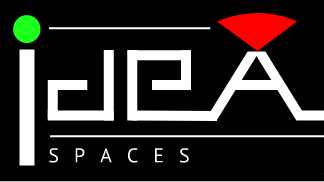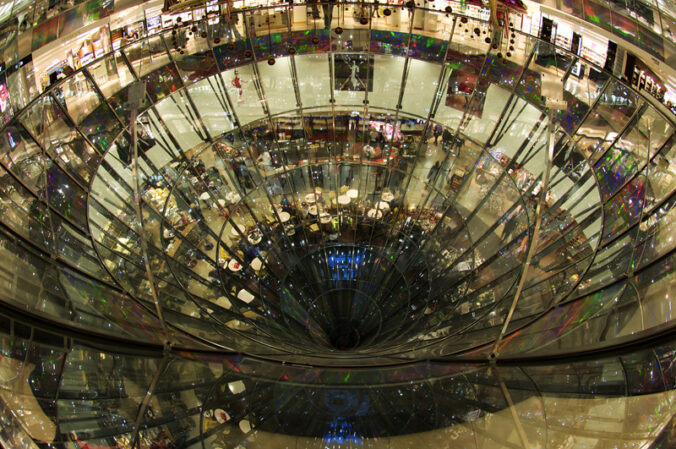It often amazes me how often humans skate past the real issue and fail to address the actual substance that they are trying to address. I see this in my world of education when the focus of activity often becomes the proposed solution to a challenge rather than removing the challenge from its context and examining it in its raw form. In education, this challenge is actually quite simple at its root: it is about creating learning for humans. And yet we get lost in mazes of accreditation, grades, class scheduling, learning modalities, enrollment, and so on. The same thing can be said for many aspects of climate change. At its root creating a sustainable future is about how we power the niceties of human civilization without destroying the planet. It is about energy. Both education and climate change are also deeply intertwingled with the problem of how to create a just polity.
All three of these areas are subject to scarcity paradigms often rooted in Industrial Age economics. There are only so many resources to teach students effectively. There is a finite amount of energy available to power our societies. Human societies have always suffered from a misallocation of justice that favors the rich and powerful. It’s in our nature. And they all miss the point.
Within the contexts of their respective paradigms all three of these resource scarcity statements are true. However, where the true scarcity lies is in our ability to imagine how our paradigms of learning, energy, and power are shaping our perceptions of what is possible in each of these areas. Donella Meadows calls this “the power to transcend paradigms” and, among all of the leverage points of her 1999 article, this is the hardest to achieve and the one most likely to be resisted because people cling to their paradigms fiercely. This is because those paradigms form the bedrock of what they use to make sense of the world.
It would be simpler if humans would recognize paradigms as existing within a universe of paradigmatic possibilities and for that to form their basis for understanding the world. But this requires a level of perspective that few, even the educated, have. One of the reasons for this is that education today is based on constructing disciplinary paradigms and so, as you become more educated, you become more indoctrinated in a particular set of rules. These have their utility as a set of tools to organize thought (a critical function) but if all that’s in your toolbox is a box of hammers everything looks like a nail to you, no matter how beautiful or sophisticated those hammers may be.
The thread of running up against paradigmatic walls runs through many of Kim Stanley Robinson’s books. This is particularly true of the book we are reading as part of Bryan Alexander’s book club, The Ministry for the Future. Robinson goes so far as to employ as a narrative device his chapter structure to explode paradigms, writing them from the perspective of everything from the protagonist to a carbon molecule (something I should try in my own writing).
I find a lot of parallels between Robinson’s thinking and my own work in education. Those that argue that change is impractical in both arenas tend to do so from a position of scarcity and sacrifice. Robinson argues persistently through his book that this is a false choice, as do I. There is plenty of energy and economic power to reshape how we approach the problems of climate change. Likewise, there are plenty of opportunities to communicate learning to our students as well. We are just blinded by our paradigmatic blinders from considering possibilities beyond those dictated by the dominant approaches to economics and the systemic structures it creates.
If you think in terms of energy, we have plenty to sustain our needs outside of a fossil fuel paradigm that is both rooted in scarcity and the source of climate change. If you think in terms of learning, we have plenty to sustain our needs out of the Industrial schooling paradigm that creates scarcities often based on artificial structures and inefficiencies. Likewise opportunity in achievement need not be a scarce resource. It just needs to be liberated from its inequalities. We need to shed these scarcity paradigms if we hope to create sustainable futures for our children, whether we’re talking about their minds, their life chances, or their planet.
The challenge is moving up to a higher level of abstraction from the paradigms that currently shackle our thinking. All of the paradigms of scarcity have at their roots the industrial economic paradigm. If you accept that, all politics, learning, and energy needs revolve around managing scarcity. When I asserted that this shouldn’t necessarily be the case in one of the discussions about the book, I was challenged in my assertions. Steve Foerster argued, “But scarcity of resources is real. I don’t see economics as inherently about acquisition, or inherently including assumptions either way about the propriety of using natural resources. It’s simply the social science studying how humans deal with that scarcity.” He is not wrong. However, I would counter this by arguing that economics is limited in arguing about resources in a way that misses huge opportunities. It is easy to look beyond industrial economics to see how humans have constantly redefined resources and scarcity.
To cite just one example, I argued in another recent blog about the book that we have reshaped scarcity in information resources in a fundamental way by digitizing it. Robinson argues that we can and should do the same when it comes to economics and scarcity of all kinds. His protagonist repeatedly finds herself in paradigmatic arguments with those invested in the existing paradigms. “Experts” on the subject who have been fully educated in “this is the way things are” outlook on the world are the central villains in the book. To be more precise, the villain is often not the person but the blinders under which they operate. The Ministry for the Future is fundamentally a book about the dangers of disciplinary blinders and the compartmentalization of thinking. Siloed thinking is fundamentally out of alignment with the realities of the Digital Age.
A central theme of my own work has been to look at the possibilities of a Digital Age paradigm and apply them to a whole range of issues that face us as societies and as a species. This is what I argued in “Rain” and this is what I apply to teaching and learning in the pandemic (and beyond) in my new book Learn at Your Own Risk. It is the central argument of my forthcoming book, Discovering Digital Humanity as well.
Robinson also argues that there are plenty of resources to create a sustainable existence on our planet. What both of our work has in common is that I think we are both frustrated by the extent that efforts to address both wicked problems (and I would extend that to the political sphere) are bounded by paradigmatic and, by extension, rhetorical straightjackets. This is not about capitalism vs. socialism. Both of those are bound by economic resource arguments. They just differ on how those resources should be distributed throughout society. This is also not about who deserves access to education, or, more appropriately, access to learning. It is about creating ecosystems of learning (and learning to learn beyond paradigms) that make human beings capable of imagining the new paradigms fundamental to our collective futures, whether we are talking about the future of democracy or the larger future of humans as a species on this planet.
The true scarcity is one of imagination, not energy or knowledge. Yet, this seems to offer a major challenge to our traditional dichotomies of have and have-not. At their roots both of these concepts are products of paradigms of industrial economics and everything that flows from it. Economics reached its maturity during the Industrial Age, indeed it is hard to separate the two. It drives our politics and educational systems. Until we transcend Industrial Age thinking in all of these, we will miss the opportunities of both the Digital Age and the post-Fossil Fuel Age, the latter failure spelling the potential doom of humanity itself.

